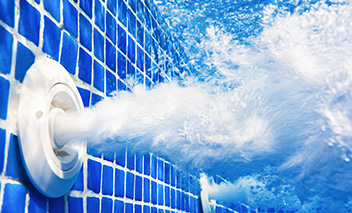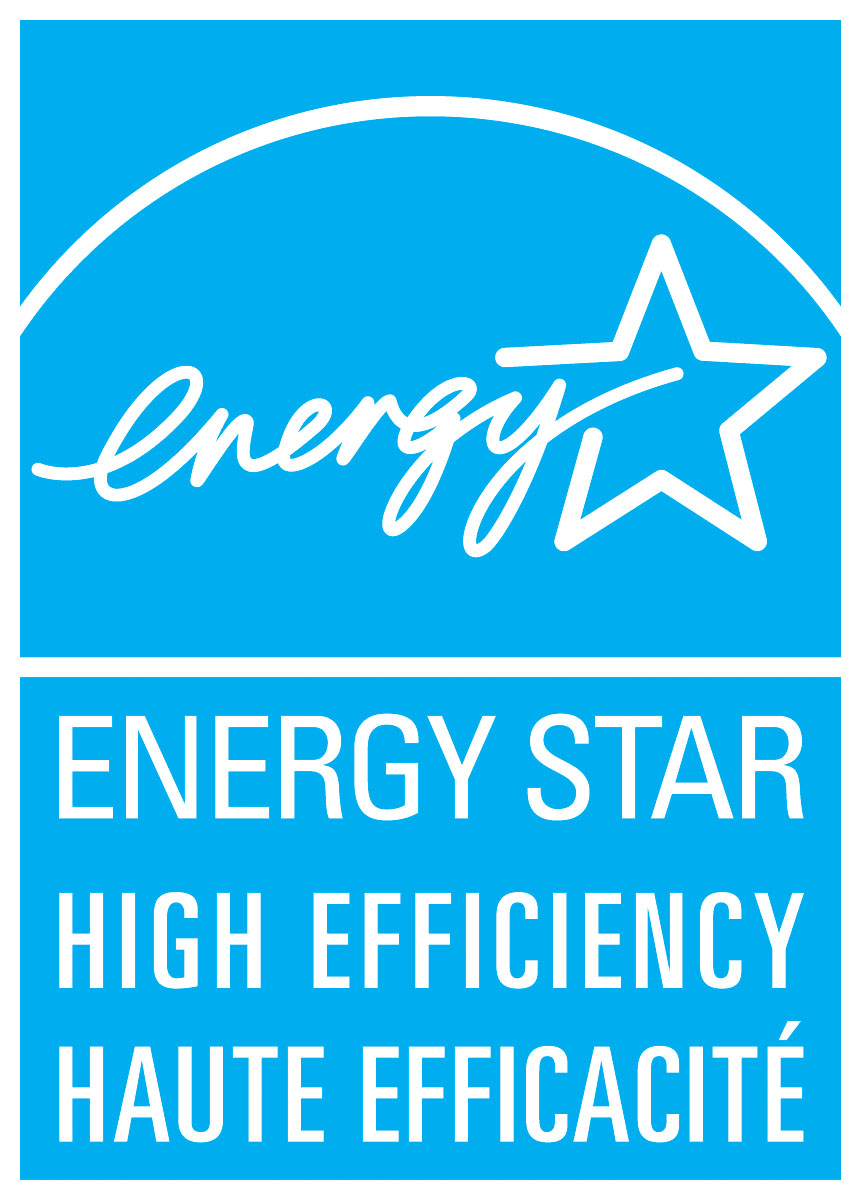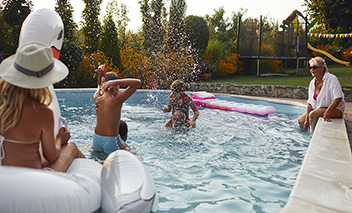Preparing for pool season
Warm weather is just around the corner and for some of us that means so is pool season! As pool pumps are the most important piece of equipment for your pool’s circulation, here are some key facts for you to know.
—Things are heating up and summer is just around the corner, which means it’s almost pool season! But did you know your pool pump is the heart of your pool’s system and it could be your home’s second largest energy drainer? A pool pump can add about $580 to your energy bills every year. That’s why it’s important that you have an energy-efficient, properly sized pump for your pool. Here’s what you need to know about pool pumps:
The basics

Pool pumps are a key component in pools because they re-circulate water through a filter to make sure it’s always clean and clear. All swimming pools have at least one recirculation pump, but many have multiple pumps. What many pool owners may not realize is exactly how much excess energy their pool pump might be wasting. Conventional pool pumps are designed to operate at only one speed. This means they’ll continue to run at higher flow speeds, regardless of the size of your pool, or your needs at the time. This is especially true since filtration -- the primary function of a pool pump -- requires only half the flow speed of pool cleaning. So if you’re using your pool pumps only to recirculate water, this can lead to excess energy consumption.
Pro Tip: Choosing variable speed and multi-speed pool pumps can help cut energy costs. Both variable speed and multi-speed pumps allow for better and more effective filtration of the pool water through slower filtration rates. This means you can enjoy clear and hygienic water, along with energy savings!
When to upgrade
The most obvious sign that it’s time to upgrade your pool pump is when the motor is completely dead. But if you wait until then, you risk losing valuable swim time. There are a few other signs you can look out for that could mean it’s time to call a pool services contractor to check your pool pump. That’s when it:
- Is seven to ten years old,
- Seems to be less powerful,
- Is constantly noisy,
- Gets hot and shuts off,
- Hums or buzzes but does not start, or
- Starts slowly.
The ENERGY STAR® advantage

ENERGY STAR certifies both in-ground and above-ground pool pumps. Certified in-ground pool pumps use up to 65% less energy than standard models and can save you thousands of dollars over the lifetime of the product. In fact, this kind of investment could pay for any additional upfront costs in less than two years. ENERGY STAR certified above-ground pumps use 17% less energy than standard models and have several energy-saving features.
Filtration
Both types of certified models are able to deliver appropriate flow for filtration and cleaning through their efficient motor design and special energy-saving features. The slower water filtration rate provides more effective filtration. It also puts less strain on the system and prolongs the life of your pool’s filtering system.
Operating speed
ENERGY STAR certified pool pumps can also run at different speeds, like variable speed or multi-speed pumps. They can be programmed to operate at the optimum speed to meet your pool’s needs. This function reduces the pump speed by half, using just one-eighth as much energy. This results in significant energy savings. As an added bonus, ENERGY STAR certified pumps are also quieter than standard models!
Sizing

Some people tend to think ‘the bigger the better’ when it comes to pool pumps, but the truth is an oversized pool pump is actually harmful for your pool and your wallet. If the pump is larger than necessary, it will have a more powerful motor and circulate water at a higher flow rate. This uses more energy and puts additional stress on your pipes and filter. What’s more, if the flow rate is too high, your filter will become less effective and this might even negatively affect your pool’s clarity. Everyone wants to make a splash in a clean and clear pool, right?
If you’ve already started to research your next pool pump, don’t look to the rated horsepower of your current pump as a good indicator of what to look for in a replacement. Newer pumps tend to be more efficient, and although equipped with a smaller motor they will deliver the same flow. So if an installer recommends one that seems smaller than your existing unit, just remember that newer, lower horsepower pumps generally use less energy and are a better option for meeting your pool’s filtration and cleaning needs.
Pro Tip: When comparing pool pumps, the best way to determine relative efficiency is to compare the Weighted Energy Factor (WEF). A higher WEF means a more energy-efficient pump.
Pool pumps vs hot tub pumps
When you’re in the market for a new pool pump, it’s important to remember that pool pumps and hot tub pumps are not the same as they serve distinct purposes. Hot tub pumps and pool pumps are sized differently, and are unique systems designed to maximize efficiency for their specific purpose. Also, it’s important to note that hot tub pumps currently fall outside the ENERGY STAR scope for being certified.
Learn more and connect with us
Looking for more tips on energy efficiency? Follow ENERGY STAR Canada on Twitter, Facebook, Pinterest and LinkedIn to maximize your energy savings and get the latest on energy-efficient products.
Page details
- Date modified:


